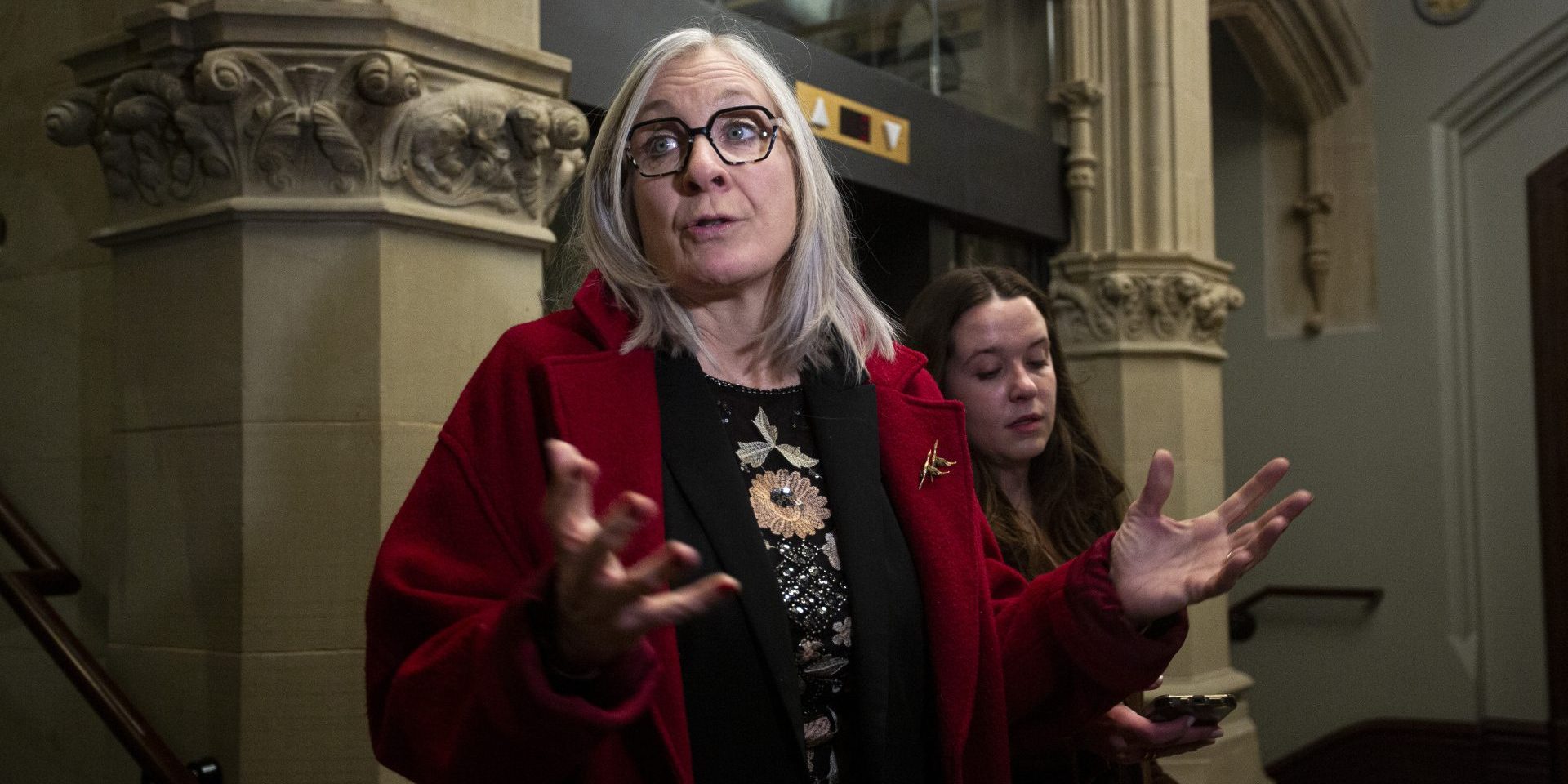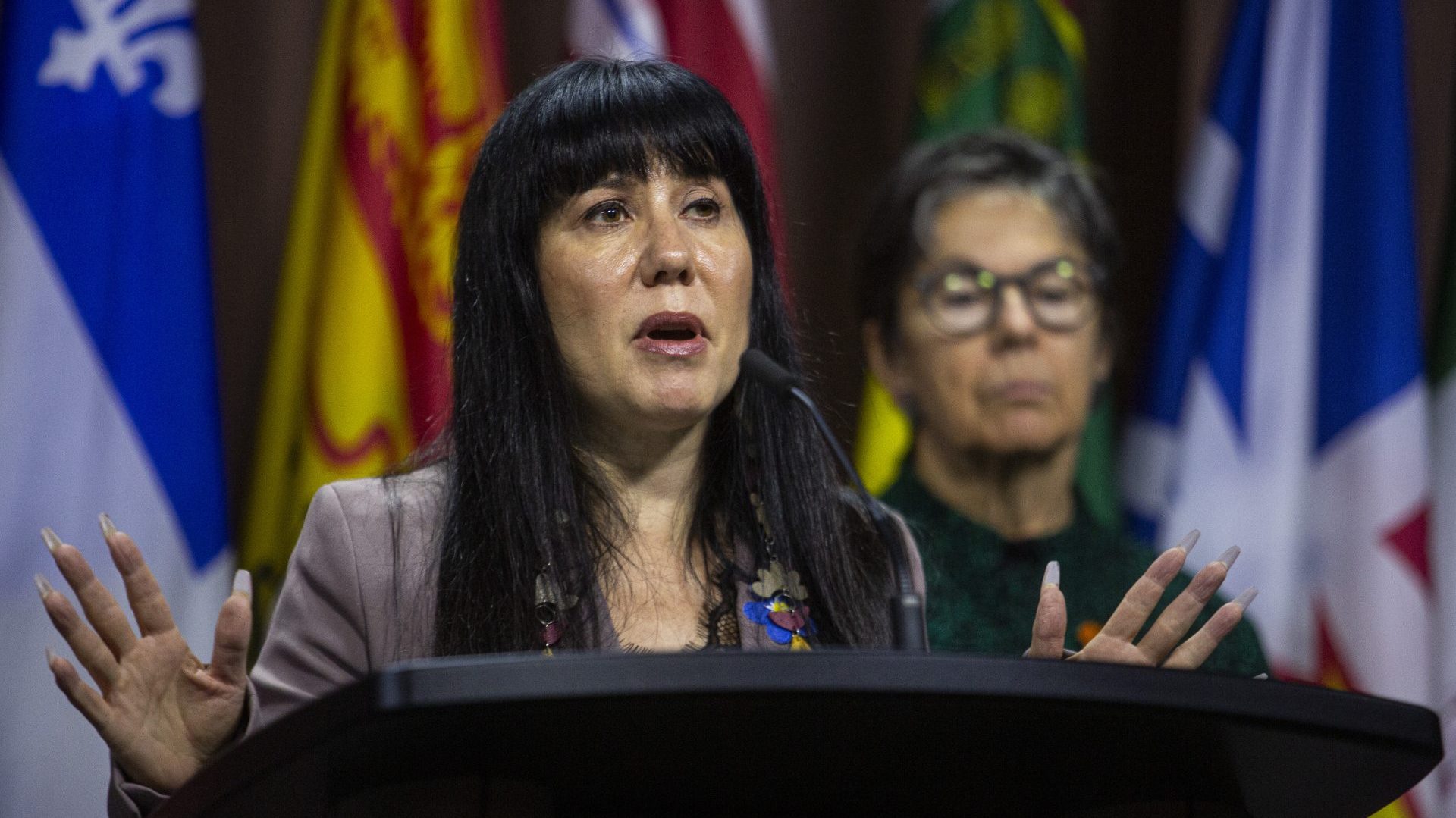Disability advocates launch ‘Canada Disability Benefit diet’ to highlight ‘impossible choices’ recipients face

As disability advocates call on the federal government to increase its “totally inadequate” federal benefit regime ahead of this year’s budget, the Daily Bread Food Bank has released a new campaign highlighting the “impossible choices” beneficiaries face living on $7 per day and “legislated poverty.”
Last week, those who qualify for the new Canada Disability Benefit (CDB) received their third monthly payout. Yet, alongside issues with the rollout—including initial payment delays and miscalculated benefits—sources say even the maximum benefit of $200 per month falls far short of the stated goal of lifting significant numbers of Canadians with disabilities out of poverty.
NDP MP Leah Gazan (Winnipeg Centre, Man.), her party’s critic for people with disabilities, told The Hill Times that, in its current form, the CDB is “totally inadequate,” and that despite extensive consultations before the benefit was implemented and advocacy since, the Liberals have so far remained unresponsive.
“The Liberals continue to put up huge barriers to accessing the benefit,” Gazan said, adding that during the COVID-19 pandemic, the federal Emergency Response Benefit amounted to 10 times more than what is being allocated to Canadians with disabilities.

Furthermore, beyond the inadequate benefit, Gazan said that acquiring the Disability Tax Credit (DTC) to qualify for the federal benefit is “notoriously difficult” for many seeking to claim it.
Under the current regulations, the CDB requires applicants to first apply for the federal DTC, which advocates have called excessively restrictive as it only benefits those who already pay taxes.
A 2023 report by the Canada Revenue Agency’s Disability Advisory Committee revealed that only a quarter of individuals with severe disabilities surveyed by Statistics Canada in 2017 applied for a DTC certificate, and only 11 per cent of those completed the entire application process and received the credit.
To apply for the tax credit, a person must submit two forms: one that they fill out themselves, and one completed by their doctor. There is no legal maximum on what a Canadian doctor can charge to fill out a form, and patients are typically paying anywhere from $30 to $300 to request a form that is not guaranteed to be approved by the CRA.
Additionally, for those who do receive the CDB, the benefit is classified as social assistance under the Income Tax Act and included in net income for tax purposes. While not taxable itself, the CDB increases an individual or family’s total income, resulting in a decrease in other income-tested benefits, such as the Canada Child Benefit, Canada Workers Benefit, and the Goods and Services Tax Credit, among other provincial and federal benefits.
According to the government’s own analysis, only 640,000 of the roughly 1.6-million Canadians living with disabilities will qualify for the benefit, with just 25,000 of those expected to be lifted above the poverty line by 2034-35.
To highlight the inadequacy of the benefit, last week, the Daily Bread Food Bank teamed up with Canadian social media influencers for a “tongue in cheek” social media campaign promoting a new “CDB diet,” challenging people to live off just $6.67 per day in food by practicing “mindful eating, built-in control portion, and financial discipline.”

The national campaign, spearheaded by the food bank and a coalition of more than 50 anti-poverty and disability rights organizations, is intended to spark outrage and highlight the “impossible choices” faced by Canadians living with disabilities every day, explained Daily Bread CEO Neil Hetherington.
“Many Canadians have no idea that Canadians with disabilities are receiving $1,000 less than even the poverty line, and have to get by using friends, family, and charity,” Hetherington explained. “We believe that’s fundamentally wrong and that there is something everyday Canadians can do about it.”
Hope Agbolosoo, a fitness influencer and former Big Brother Canada contestant, told The Hill Times he attempted the diet for an entire week, and documented his trips to the grocery store to demonstrate how difficult it is to stretch $200 for a whole month.
“It doesn’t cover anything,” Agbolosoo said, adding that he ate slices of bread “like crazy” during the week as it was the only snack he could afford.
Beyond the added difficulty with hitting his regular workout routine, Agbolosoo said he couldn’t imagine sustaining himself for a month, much less how someone could work even a part-time shift on so little food.

“I had no energy, and I don’t know how anybody expects anyone to be able to survive on little to nothing,” Agbolosoo said. “Even with a job, most of the people receiving this benefit are still in poverty … I can’t imagine coming back from work and still having to worry about whether you can still afford to eat.”
Hetherington said that, despite the benefit, the number of Canadians with disabilities accessing food banks has remained static since before the pandemic, with one-in-four clients living with a disability, and 29 per cent of those reporting social assistance as their primary source of income.
Hetherington said the current structure of the federal and provincial benefits functionally legislates Canadians with disabilities into poverty.
Hetherington said that while he praises the federal government for introducing the benefit, alongside the opposition parties who voted unanimously in favour, he noted that it has fallen far short of its intended aim of lifting Canadians with disabilities out of poverty.
Bill C-22, which established the benefit, received royal assent on June 22, 2023, and received unanimous support from all parties at third reading in the House.
Hetherington said he hopes to convince the federal government to improve the program in the upcoming budget—or at the very least, safeguard it from being reduced—by framing it as both a social and economic boon in upcoming lobbying efforts.
“I don’t know if it will be an austerity budget, but if it is shifted from operations to capital spending that can still have real benefits for the disability community,” Hetherington said, pointing to federal housing measures focused on purpose-built social housing.
However, while “bricks and mortar” to keep a roof over their heads will help in the long term, “Canadians with disabilities need food in their stomachs now,” Hetherington said.
“The conversation around food insecurity is already happening, and we’re hopeful that the policy changes needed to reduce lineups at food banks are already known,” Hetherington explained.
Alongside increasing the benefit to be more aligned with the poverty line—which is closer to $2,300 a month for a single person in a small city—Hetherington said Daily Bread is calling for the removal of the DTC requirement, and for any individual receiving a provincial or territorial disability benefit to qualify; to exempt the benefit from being treated as income to prevent clawbacks; and to raise the income threshold for eligibility above the poverty line, based on individual income rather than household income.
Hetherington said his group has applied to meet with the Finance Committee as soon as it begins pre-budget consultations, adding that he is hopeful that both Liberal and Conservative members of the committee will be receptive given the attention the latter gave the issue in the first week of the new Parliament.
“We’re hoping to guide both sides of the aisle back from the brink that we collectively are on as a nation,” Hetherington said.
Conservative MP Laila Goodridge (Fort McMurray–Cold Lake, Alta.), her party’s social development and families critic, did not respond to The Hill Times‘ request for comment by publication deadline.
The House Standing Committee on Finance has yet to announce when its pre-budget consultations will begin this fall. It has held two meetings since the House returned on Sept. 15, both of which were focused on committee business.
Last week, Finance Minister François-Philippe Champagne (Saint-Maurice–Champlain, Que.) announced that he would table the 2025 federal budget on Nov. 4.
In response to The Hill Times’ request for comment, Jobs and Families Minister Patty Hajdu’s (Thunder Bay–Superior North, Ont.) office highlighted the benefits of the initial $6.1-billion investment, and said the total yearly benefit of $2,400 is meant to “supplement existing benefits,” and will be adjusted to inflation each year.
“Over time and through feedback, the Government of Canada will improve the CDB and how to access it where needed. We will get this right,” wrote Jennifer Kozelj, Hajdu’s press secretary. “Canada is committed to making the eligibility and application process for the CDB as barrier-free and straightforward as possible.
sbenson@hilltimes.com
The Hill Times






 LICENSING
LICENSING PODCAST
PODCAST ALERTS
ALERTS













